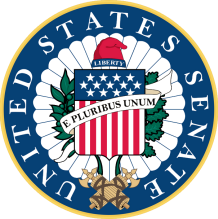Advertisement
|
Senate Votes to Eliminate Public Broadcasting Funds
| RADIO ONLINE | Thursday, July 17, 2025 | 1:00pm CT |





|
 |
In a dramatic overnight session, the U.S. Senate voted to approve legislation that fully eliminates federal funding for the Corporation for Public Broadcasting (CPB), marking the first time since its founding in 1967 that the organization faces a budget of zero. The House is expected to pass the bill swiftly, sealing a major victory for President Donald Trump, who has long accused NPR and PBS of political bias.
The vote, which advanced along narrow partisan lines, required Vice President JD Vance to break a tie after Republican Senators Lisa Murkowski of Alaska and Susan Collins of Maine sided with Democrats to oppose the funding clawback. Despite that opposition, the bill cleared the Senate, and with House support expected, public media leaders are bracing for wide-ranging impacts.
President Trump celebrated the vote as a long-awaited fulfillment of Republican pledges to cut federal support for public broadcasting. "For decades, Republicans have promised to cut NPR, but have never done it, until now," Trump declared on his social media platform.
The cuts are expected to disproportionately affect smaller and rural public media stations that rely more heavily on federal funds than their counterparts in larger cities, which often have broader funding sources, such as member donations and private grants. Stations in some rural areas may be forced off the air.
"Today's vote by the U.S. Senate to eliminate federal funding for the Corporation for Public Broadcasting is a decision with profound, lasting, negative consequences for every American," said Patricia Harrison, President and CEO of the Corporation for Public Broadcasting (CPB). "Without federal funding, many local public radio and television stations will be forced to shut down."
She added, "American taxpayers rightly expect and deserve public media to be reflective of and responsive to the local voices it serves and deliver accurate, unbiased, and nonpartisan news and information. Rather than dismantle public media, we should fund and strengthen it. The path to a better, more trusted public media is only achievable with continued federal support and constructive reforms."
Despite their criticism of NPR's perceived political leanings, Murkowski and Collins emphasized their support for the local role public broadcasters play. "If you think there's too much bias at NPR, let's address that," Murkowski said. "But you don't need to gut the entire Corporation for Public Broadcasting."
Other Republicans, however, cited accusations of partisan bias and argued that the CPB has outlived its purpose in the digital age. David Bozell, president of the conservative Media Research Center, called the move a "historic rollback," posting on X that, "PBS and NPR were chartered to provide objective journalism. Instead, we got drag shows for kids, gushing coverage of Democrats, and silence or smears for conservatives."
Public media executives have pushed back on that characterization, pointing to neutral coverage and the CPB's legacy of trusted educational and cultural programming, including Sesame Street and Antiques Roadshow. NPR, in its own coverage Thursday morning, noted that its editorial staff had no role in reporting on the funding cuts.
NPR CEO Katherine Maher described public radio as a "lifeline," citing polling that shows nearly three-quarters of Americans rely on their local public radio stations for public safety information and news alerts.
The elimination of CPB's funding marks a significant shift in U.S. broadcasting policy. When Congress created the CPB in 1967, it declared noncommercial television and radio "for instructional, educational, and cultural purposes" to be in the public interest. For decades, it received bipartisan support, even as some conservatives called for its defunding.
But Trump made funding cuts a political priority this year, using the rescissions process to cancel appropriated funds before they could be disbursed in October. While previous presidents proposed cuts to CPB without success, Trump's aggressive use of the rescission process and pressure on congressional Republicans pushed the effort across the finish line.
As stations brace for the fallout, some are already taking action. In New York, WNYC announced that CEO LaFontaine Oliver will transition to a new role as executive chair, focusing on alternative funding models to replace the lost federal support.
While the full consequences of the cuts remain unclear, public media leaders warn that the decision will reshape the landscape of noncommercial broadcasting -- especially in underserved regions where public stations are often the only source of local news, cultural programming, and emergency communications.
Advertisement
|
Latest Radio Stories
FCC to Launch Sweeping Review of EAS at August Meeting
|
WINS Journalists Press Audacy for Safety Protections
|
NYSBA Hall of Fame Announces 2025 Inductees
|
Advertisement
|
Triton Digital Releases June 2025 U.S. Podcast Ranker
|
JR Ammons Joins Mix 96.5 Houston as Brand Manager
|
Audacy Highlights Audio's Undervalued ROI Potential
|

















